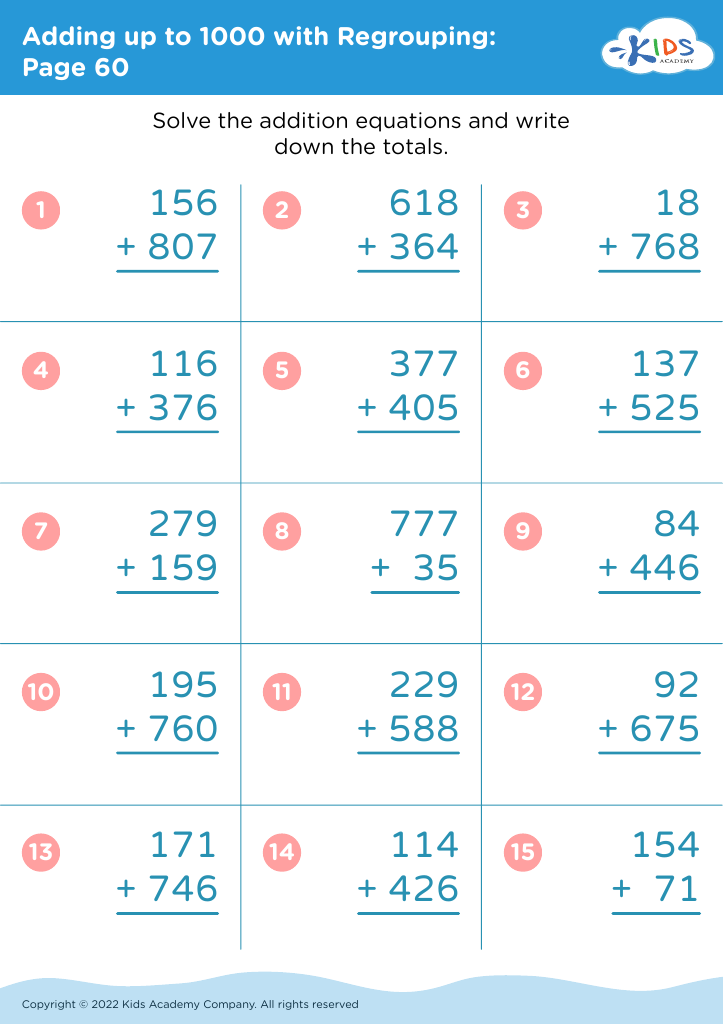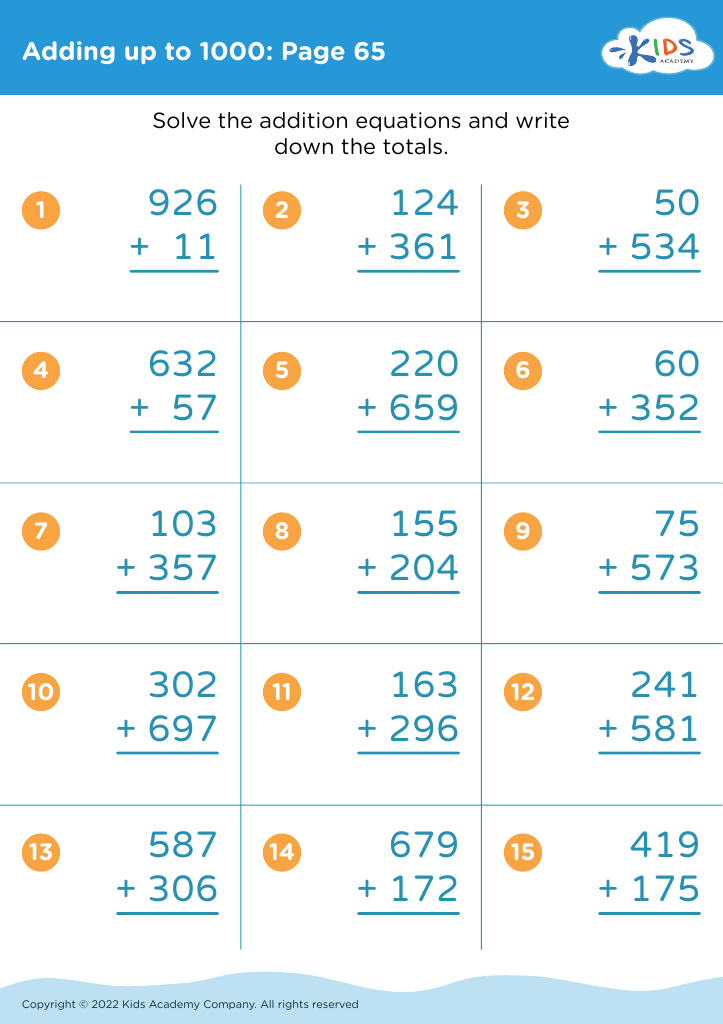Pattern recognition Adding up to 1000 Worksheets for Ages 3-7
3 filtered results
-
From - To
Discover our "Pattern Recognition Adding up to 1000 Worksheets for Ages 3-7"! These engaging, colorful worksheets combine fun and learning, enhancing young learners' skills in addition and pattern recognition. Specially designed for ages 3-7, each worksheet features varied exercises that build foundational math skills while captivating young minds. Ideal for both classroom and home use, our activities support children in recognizing number patterns and mastering addition up to 1000. Help your child develop confidence and a love for learning math. Download now and watch your young mathematician thrive! Visit the link for more details.
Pattern recognition and the ability to add up to 1000 are foundational skills critical for young children's cognitive development, positioning them for academic success. Developing pattern recognition at an early age helps children understand sequences, predict outcomes, and improve problem-solving abilities. These skills translate into stronger mathematical thinking, which is essential across various subjects they will encounter later in their educational journey.
For children aged 3-7, mastering the skill of adding numbers up to 1000 can significantly boost their numerical literacy. This developmental phase is crucial as it sets the stage for more complex mathematical concepts. Grasping large numbers helps foster an intuitive understanding of place value, an essential concept in math. Such knowledge enhances mental arithmetic skills and forms the groundwork for future topics like multiplication, division, and even algebra.
Furthermore, nurturing these skills helps build confidence in young learners. When children recognize patterns or successfully perform addition, they experience a sense of achievement and become more engaged learners. This positive reinforcement encourages a lifelong love for mathematics and learning in general.
Caring about and actively fostering these skills ensures that children not only excel academically but also develop critical thinking abilities, setting them on a path to success in a world that increasingly values analytical and problem-solving skills.

















